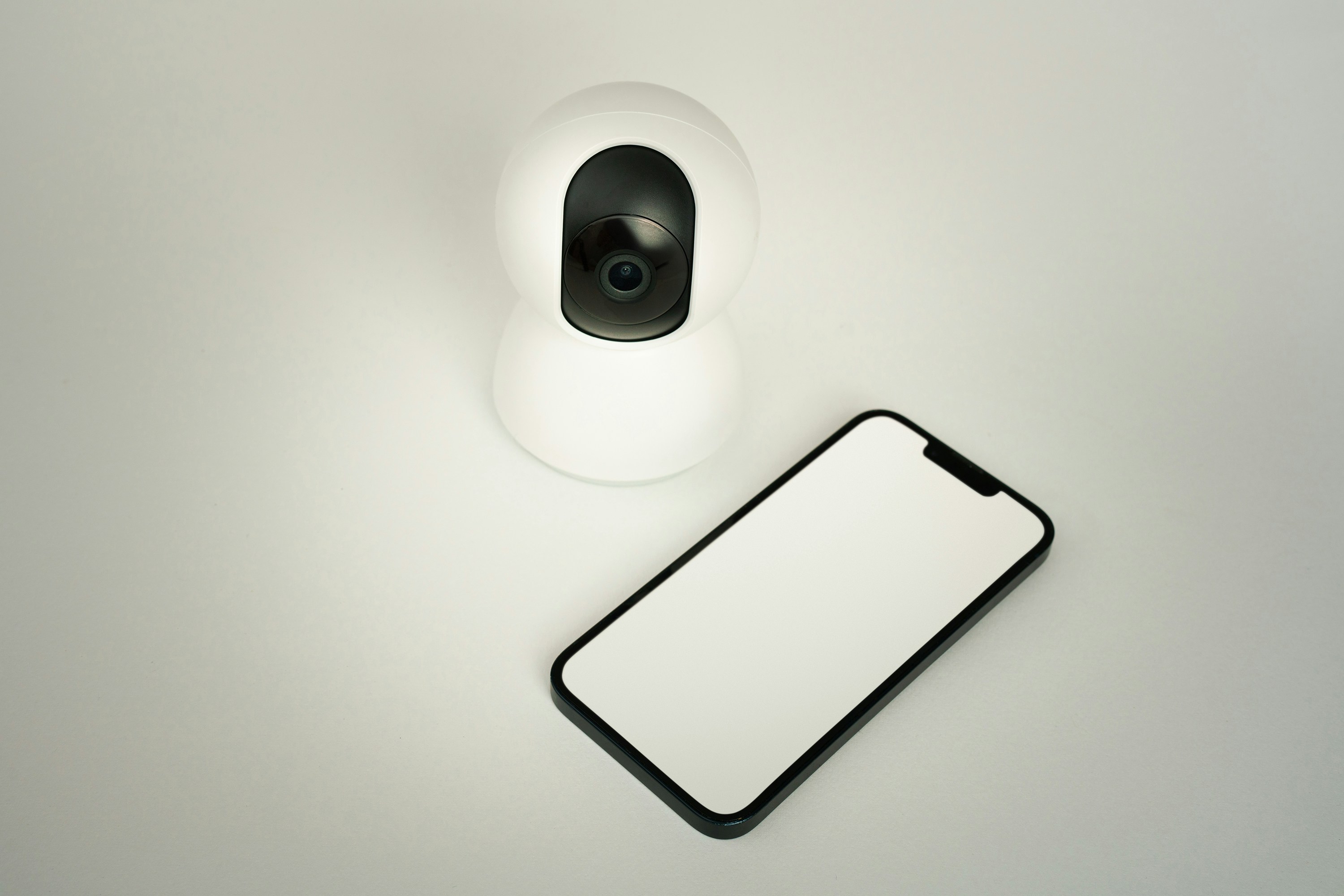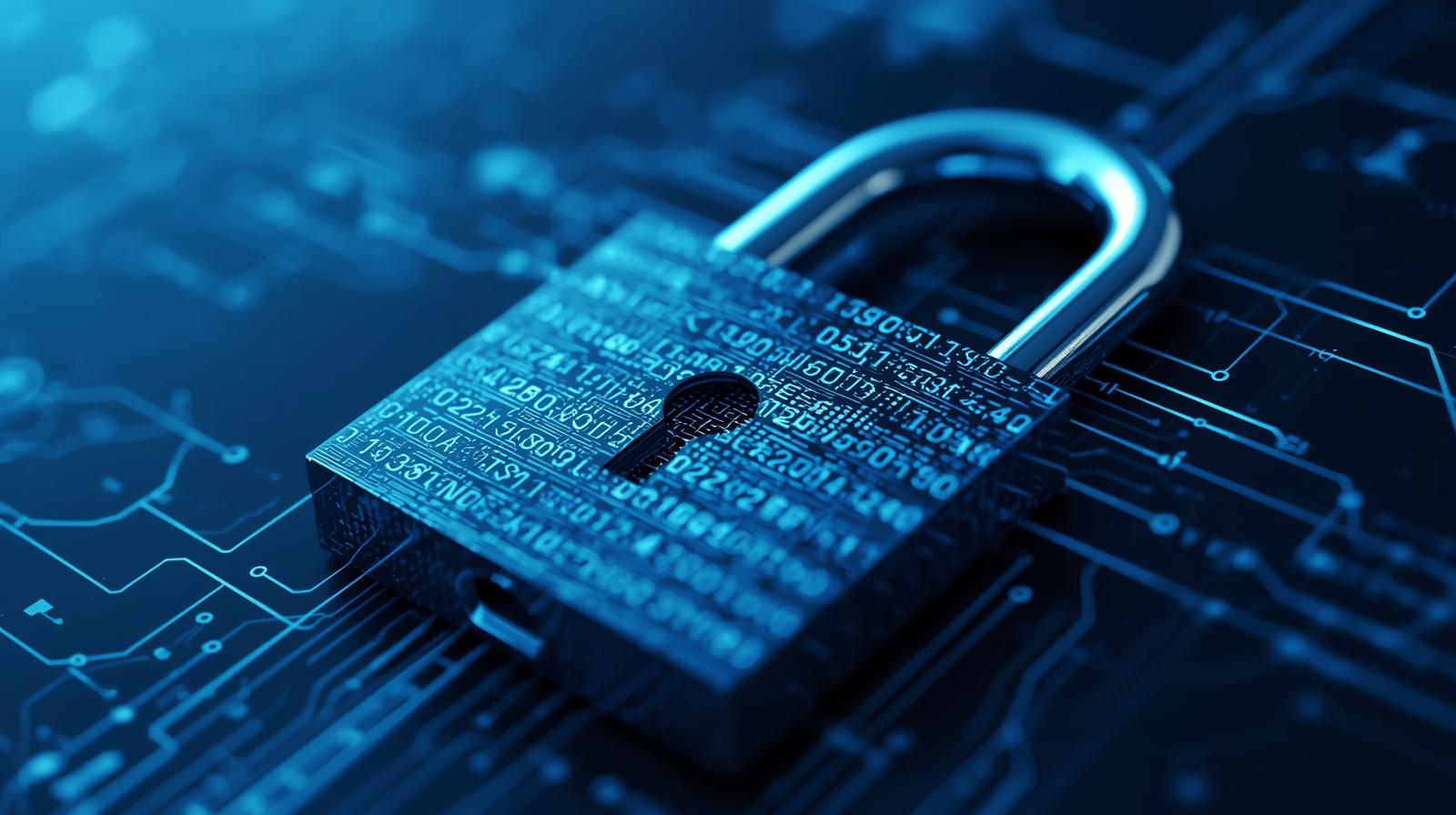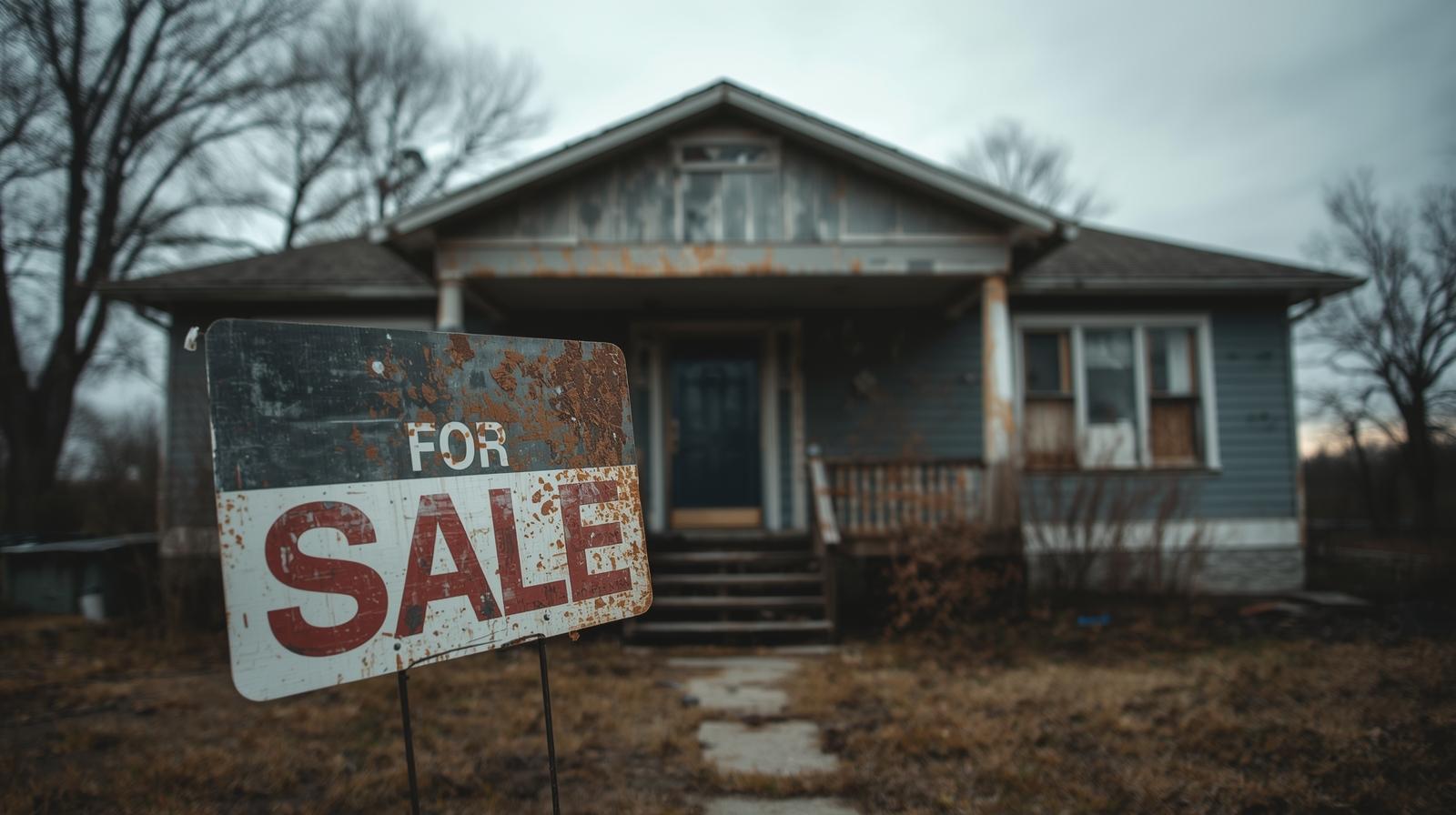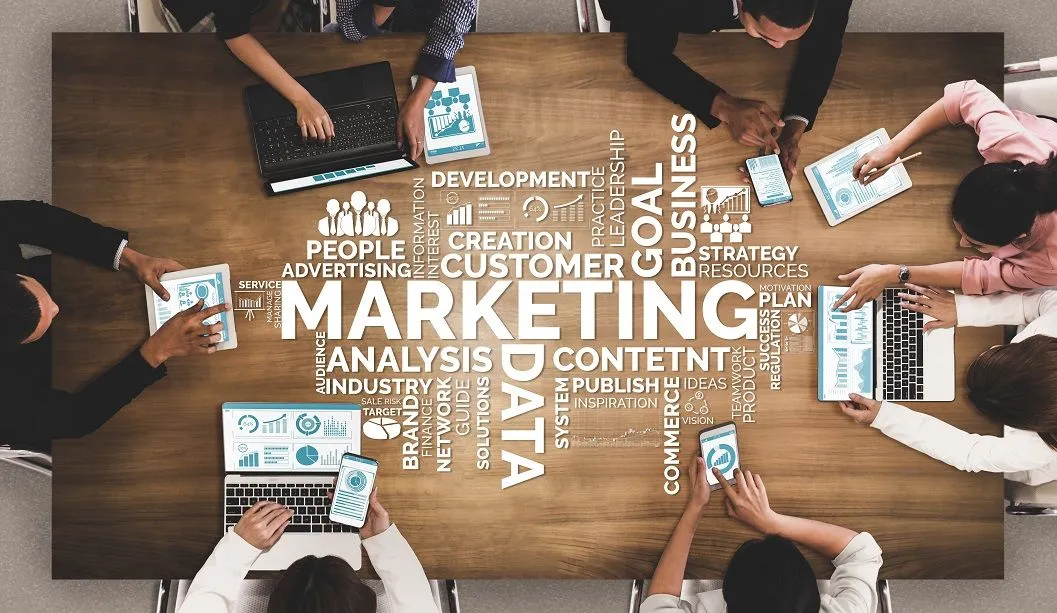Looking for A Product Liability Lawyer - Guide for Business Owners
Imagine you launch a business of a must-have collectible toy, it goes viral, sells out in minutes, becomes a fashion accessory for celebrities … and then one version of the toy turns out to detach parts so a toddler could choke. That’s exactly what happened in the recent case of Labubu.
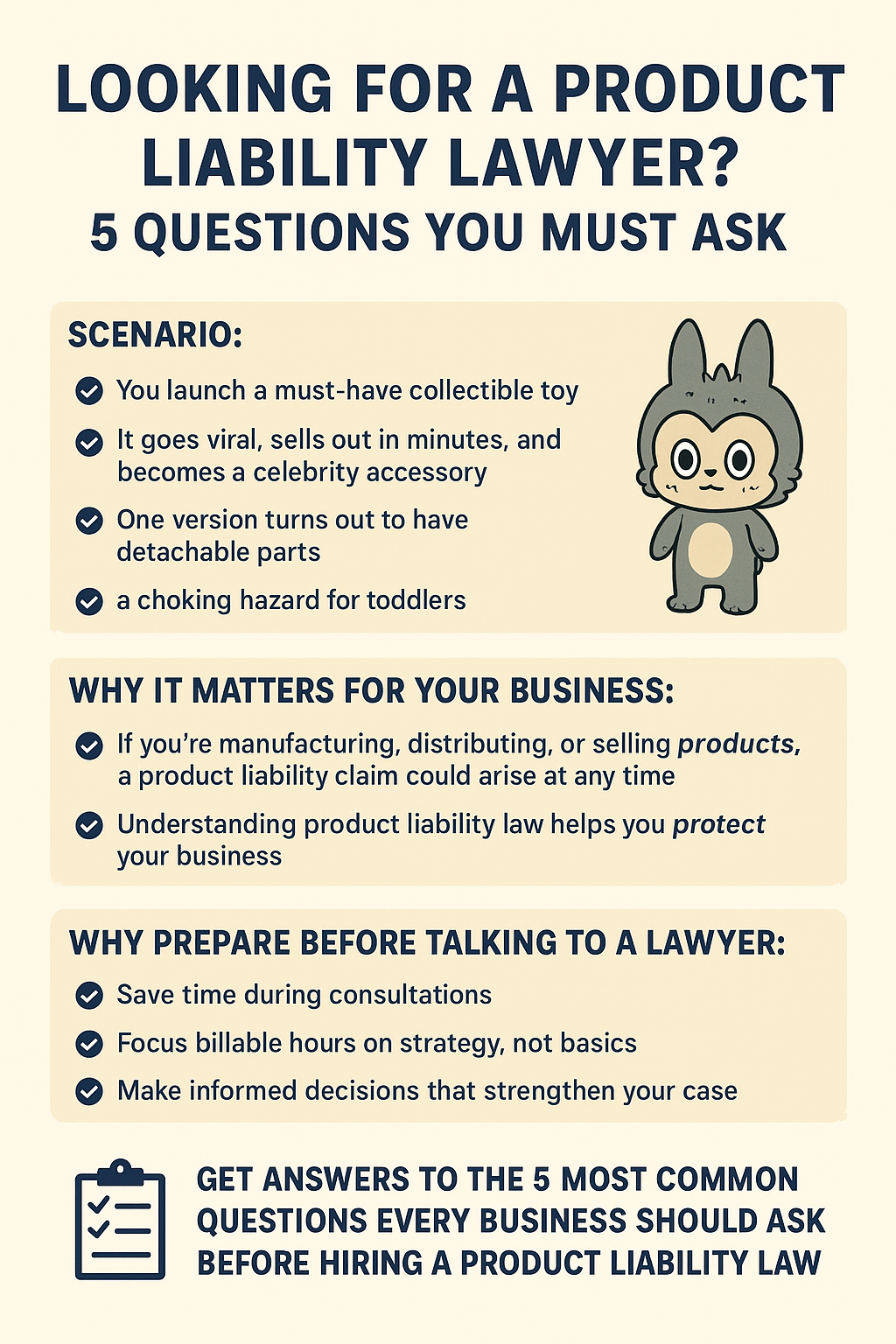
If you’re looking for a product liability lawyer, this scenario highlights why understanding product liability matters for anyone involved in manufacturing, distributing, or selling products.
Before you reach out to a product liability lawyer, getting answers to the most commonly asked product liability questions can help you:
- Save time during legal consultations
- Focus your lawyer’s billable hours on strategy for the product liability lawsuit
In this guide, we’ll walk you through the top questions to ask so you’re prepared, strategic, and ready to act.
1. What is Product Liability?
Product liability law holds the manufacturer, distributor, and seller accountable when a defective product causes harm to a consumer. It protects consumers by ensuring that those involved in

Product Liability also provides a legal framework for retailers to seek protection or indemnity for damages resulting from defects beyond their control. For instance, when the defect arises during manufacturing rather than at the point of sale.
Product Liability also provides a legal framework for retailers to seek protection or indemnity for damages resulting from defects beyond their control. For instance, when the defect arises during manufacturing rather than at the point of sale.
2. What type of lawyer practices product liability?
A product liability lawyer is typically a civil litigation attorney who specializes in tort law and commercial law relating to defective products.
Does a business owner defending a product liability suit require a personal injury lawyer? Not necessarily. A Personal Injury Lawyer primarily focuses on representing consumers or individuals who were harmed by defective products (the plaintiff side). They handle claims for compensation for injury, medical bills, or damages.
So, a business owner must look for a lawyer with product liability defense and commercial litigation experience, not necessarily a personal injury lawyer.
Businesses must proactively seek the expertise of a product liability defense lawyer to protect themselves and reactively if sued by a consumer.
Before a claim arises, a product liability lawyer can help:
- Draft contracts to ensure indemnity provisions cover liability arising from product defects.
- Advise on compliance, warnings, and internal quality control processes to reduce risk.
If sued, a product liability lawyer can help:
- Assess potential defective product liability and risk.
- Defend against claims.
- Navigate product recalls or product liability settlements.
3. Is the product liability applicable only to physical products?
Product Liability is applicable not only to tangible physical products but also to intangible products, for example digital products.
4. How to win a product liability lawsuit?
Identify the type of product liability lawsuit: There can be various types of product liability lawsuits. For instance, defect in the product was due to the manufacturing process; or the lack of warning given by the manufacturer or the distributor to consumers led to the injury/harm etc. It is pivotal to the lawsuit to understand the type of product liability lawsuit and develop your internal strategy and investigation from there.
Review Indemnification RightsIf you are a retailer and the injury is a result of a manufacturing defect then review the contract between the manufacturer and the retailer to understand who bears the responsibility to defend such third party legal claims for product liability and whether you, as a retailer, are entitled to be indemnified for third party product liability claim from consumers.
Develop Your Defense: Once you have identified the type of product liability lawsuit, then device a strategy to build your legal documentation for the matter, do an internal testing, see if you have received similar complaints, assess the complaint and decipher if the user failed to comply with instructions for using the product, whether warnings were given and not complied with by the user. It is important to take steps to show that your business has taken due care in ensuring protection to the consumer.
The strategy for defence generally involves:
- Building your legal documentation for the matter.
- Doing an internal testing of the product.
- Assessing any similar complaints or user feedback.
- Deciphering if the user failed to comply with instructions or ignored warnings.
5. Who can be sued in a product liability case?
It is one of the most common product liability question: Who bears responsibility for the product defect?
Potentially Liable Parties in Product Liability Cases: Liability can extend to any party in the product’s chain of distribution, including:
- The product manufacturer: the company that created the final product.
- Component part manufacturers: those who produce parts used in the product.
- Assemblers or installers: parties responsible for putting the product together or installing it.
- Distributors: entities that distribute the product to retailers.
- Retailers: stores or platforms that sell the product directly to consumers.
6. How do you defend a product liability claim against your business?
To defend a product liability claim, a business must focus on proving:
- The injury is not directly linked to product usage (lack of causation).
- The product was modified by the user, and hence such misuse resulted in the injury.
- Warnings accompanied with the product were ignored by the consumer.
- The consumer failed to follow the instructions for using the product.
- The product was used in a way that was not in compliance with the intended use of the product (misuse).
Steps to take:
- Document Everything & Institute a Legal Hold: Preserve all documentation, including design specs, manufacturing records, quality control logs, and internal communications. Immediately implement a legal hold to prevent any document destruction.
- Conduct an Internal Investigation: Initiate an internal review to isolate the defect, if one exists.
- Contact Your Insurer: Notify your commercial general liability insurer immediately, as delays can jeopardize your coverage for the potential product liability lawsuit cost.
- Identify Indemnification Rights: Review vendor/supplier contracts for clauses that may require them to defend or indemnify your business.
7. How much can I be sued for product liability?
The amount your business can be sued for in case of a product liability case varies depending on various circumstances. It is not a fixed number and the type of damage, factors determining the amount of damage varies by jurisdiction.
Generally, the type of damages claimed in a product liability lawsuit are as follows::
- Economic Damages i.e. quantifiable financial losses, such as lost wages, current and future medical bills, property damage, and the cost of replacing the defective product.
- Non-Economic Damages i.e. subjective, non-monetary losses, including pain and suffering, emotional distress, disfigurement, and loss of consortium.
- Punitive Damages i.e. damages awarded to punish the defendant for extreme negligence or willful misconduct, often reserved for cases where a company knowingly endangered consumers. These damages can be substantial and are a primary concern for business owners.
Factors that influence the damages claimed in a product liability case:
- Severity of injury
- Adequacy of warnings given to the customer
- Level of negligence or misconduct on the part of the business against which damage is claims
8. How long does it take to settle a product liability lawsuit?
The product liability lawsuit timeline is highly variable, ranging from a few months to several years.
For instance, the longest phase is often discovery, where both sides exchange documents and take depositions. This only can take 1 to 2 years or more, especially in complex cases involving multiple plaintiffs or sophisticated products.
Therefore, the average time to settle a product liability case depends heavily on the jurisdiction, the complexity of the product, the severity of the injury, and the willingness of both parties to negotiate.
9. How Doclegal.ai can assist a business owner and their product liability defense lawyer?
By automating the generation and standardization of these essential legal documents, and by providing powerful AI review of your current contractual obligations, doclegal.ai can significantly reduce your initial legal response time, lower early billable hours, and ensure your business has a defensible, organized record from the moment a claim is made.



.jpeg)
